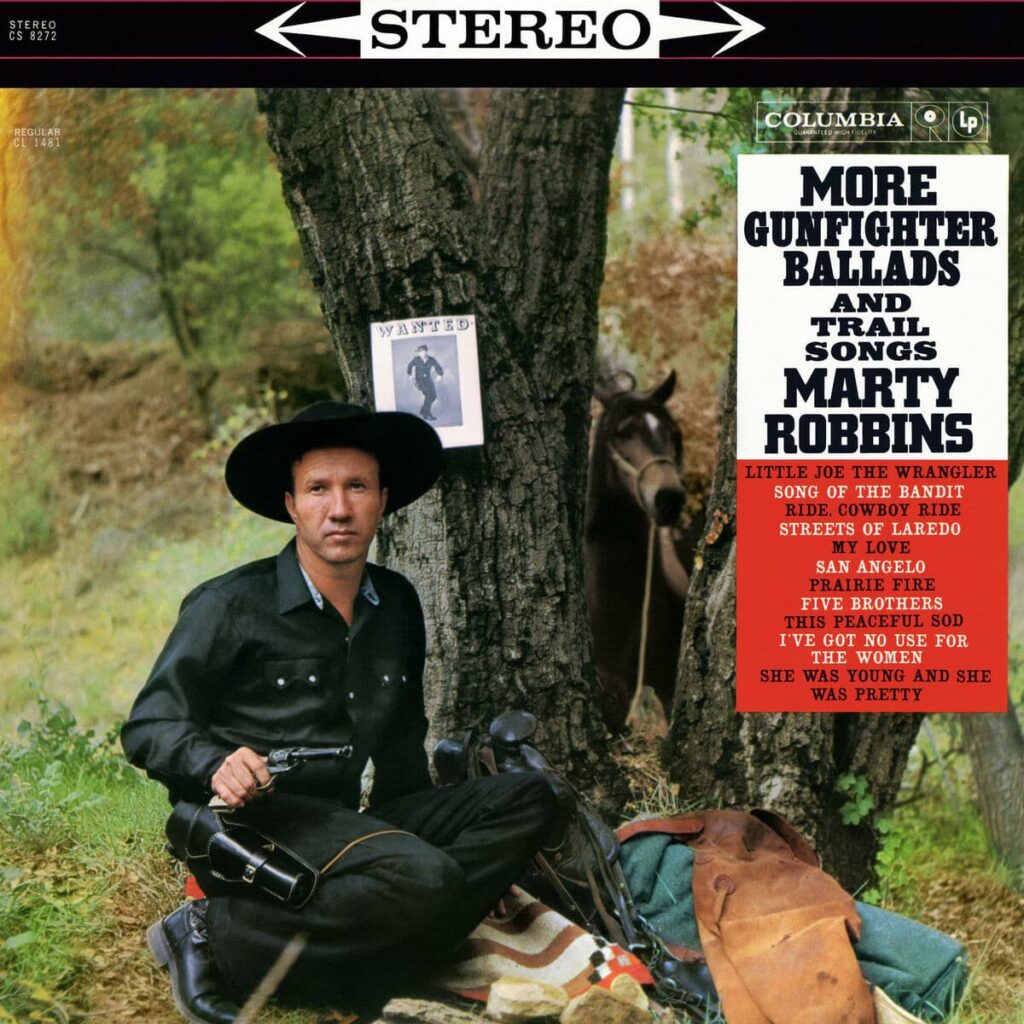
San Angelo: A Tragic Tale of Love and Loss on the Texas Frontier
There are voices that, once heard, become indelibly etched into the soundtrack of our lives. For generations of country and western music lovers, the rich, resonant baritone of Marty Robbins is undoubtedly one such voice. His ability to spin a vivid narrative, to transport you to dusty plains and sun-baked towns with just a few notes and carefully chosen words, was truly unparalleled. One such journey takes us to the heart of a doomed love story in his classic, “San Angelo.” This captivating ballad was released in July 1960 as the opening track on his critically acclaimed album, More Gunfighter Ballads and Trail Songs. While it didn’t achieve the crossover chart dominance of its predecessor’s iconic “El Paso,” “San Angelo” found a cherished place among fans of the western saga, further cementing Robbins’s legacy as the quintessential troubadour of the American West. Its impact, though not always reflected in top chart positions for individual tracks on the album, contributed significantly to the success of the album itself, a follow-up to one of country music’s most legendary records.
Marty Robbins had a profound love for the lore and legends of the Old West, a passion ignited by the stories told to him by his maternal grandfather, “Texas Bob” Heckle. It was this deep well of fascination that inspired him to craft some of the most enduring gunfighter ballads of all time. “San Angelo” is a prime example of his masterful storytelling. The song paints a vibrant, yet ultimately heartbreaking, picture of an outlaw’s ill-fated rendezvous with his beloved. The narrative unfolds with cinematic precision, setting the scene “north of the border of Old Mexico,” a land of “hot sun” and “warm wind.” The protagonist, an outlaw himself, rides into the cowtown of San Angelo, his heart filled with anticipation to meet his lover, Secora.
The meaning of “San Angelo” is a classic western tragedy, a poignant exploration of love, danger, and destiny. The protagonist is an outlaw, a man living on the edge, but his love for Secora is pure and intense. He risks everything to be with her, despite knowing the peril that awaits him. Secora herself is depicted as a woman of captivating beauty, beloved by all, yet her heart belongs solely to the outlaw. The tension builds as the outlaw arrives in San Angelo, sensing that something is terribly wrong. The atmosphere shifts from hopeful longing to stark dread as he realizes he’s walking into a trap. In a climactic and devastating moment, Secora rushes out, bravely warning him of the ambush, only to be struck down by a ranger’s bullet. The song then details the outlaw’s grief-fueled vengeance, his desperate final stand, and his ultimate demise, finding solace only in death as he reaches out for Secora’s hand. It is a powerful narrative of loyalty, sacrifice, and the inescapable grasp of fate.
What truly elevates “San Angelo” is Marty Robbins’ interpretive genius. His voice isn’t merely singing words; it’s embodying the character, conveying every ounce of hope, fear, love, and vengeance. You can almost feel the dust of the frontier road, the burning sun, and the ache in the outlaw’s heart. The acoustic guitar work, characteristic of his gunfighter ballads, adds to the authenticity, creating an immersive soundscape that transports the listener straight into the unfolding drama. There’s a raw authenticity to his delivery, a quiet intensity that draws you in and holds you captive until the very last note.
For many of us, particularly those who remember the golden age of country and western music, songs like “San Angelo” are more than just tunes; they are gateways to a bygone era. They evoke memories of Saturday mornings listening to the radio, of imagining ourselves in those dusty boots, facing down danger for the sake of love. Marty Robbins, with his unparalleled ability to weave intricate tales of the West, gave us not just songs, but entire worlds to explore within our imaginations. “San Angelo,” with its heart-wrenching narrative and Robbins’s emotive performance, stands as a powerful testament to his enduring artistry and his irreplaceable place in the pantheon of country music legends. It’s a ballad that lingers in the mind, a tragic echo of a love that defied the odds, even in the face of inevitable doom.